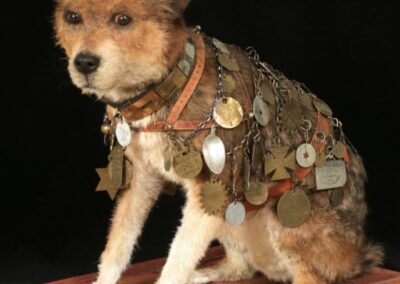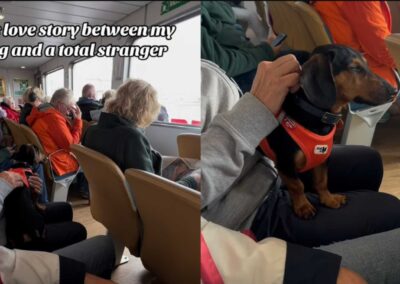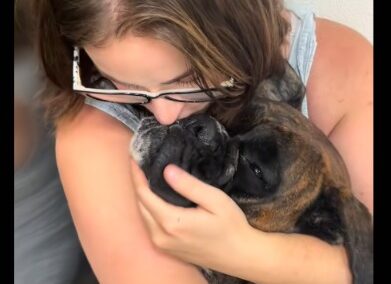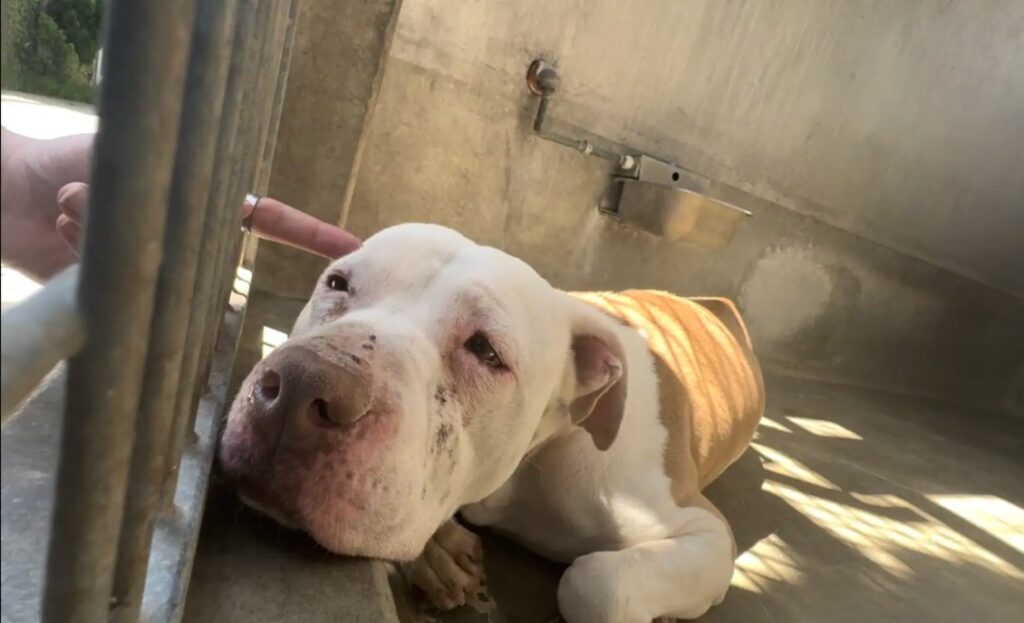
There’s something about quiet sorrow that cuts the deepest. When it’s animal sorrow, it’s worse because they have no voice—just sound.
Just little whimpers. Just a look that says, “Do you see me?” A shelter volunteer heard that soft cry one day. It stopped her in her tracks.
Inside the kennel, behind the bars, a dog was quietly crying. Not shouting, not barking. Just whimper after whimper.
Each one filled with loneliness. With longing. With something broken. The kind of sound you feel more than you hear.
The volunteer—let’s call her Maria—paused outside the kennel. She could sense this dog wasn’t simply sad. It was deeper.
The dog’s tail hung low. Its head was turned away. The body moved in small, tremulous shakes. Tears unshed? Perhaps.
But the message was clear: I’m scared. I need comfort.
Moved, Maria knelt in front of the kennel. She whispered soft words through the bars. She opened the kennel door quietly and invited the dog closer.
At first, the dog hesitated. But after some time—some gentle strokes and quiet patience—it leaned in.
Let Maria touch its head. Let Maria’s hand rest on its back. Let something warm and human happen.
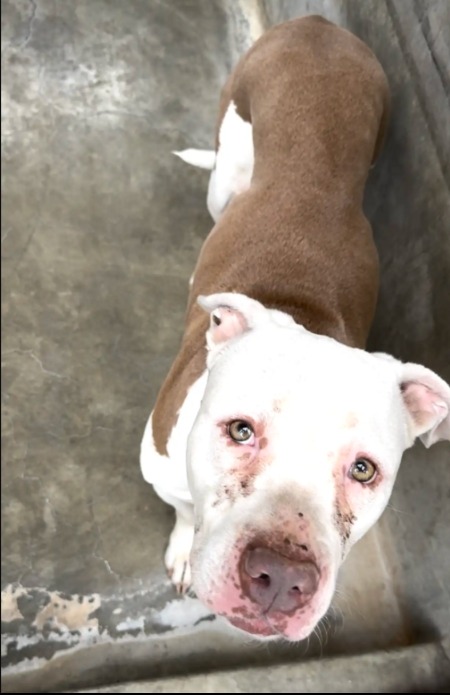
You see, shelter dogs carry invisible weights. Fear. Rejection. Confusion. Unmet needs.
In a shelter, routine provides food and space, but love is rarer. Comfort is rare. Compassion is rare. And often, the dogs settle into silence because it hurts less than expecting something that might never come.
But the silent whimpers—those are signs. Signposts. If someone notices, something changes.
Maria’s moment with this dog didn’t fix everything.
Shelter walls don’t disappear just because someone shows kindness for a few minutes. But it changed that moment. It offered respite. It offered recognition.
The dog wasn’t invisible anymore.
Other volunteers saw. Staff saw. The dog’s demeanor softened. Whimpers became softer. A tail wagged. A posture straightened.
It wasn’t instantaneous transformation—but trust began to creep in. Hope took a tentative breath.
There are dozens of dogs in shelters. Some are loud. Some jump up, paw, bark. Some are outgoing. Some are impossible to ignore.
But some—many—are quiet. Their pain is quiet. Their longing is quiet. Their cries occur in silence.
This story matters because too often, rescue stories focus on the bold ones. The playful ones. But the quiet ones—those who need comfort even more—deserve the same attention.
Because comfort isn’t just nice. It’s vital. It’s healing.
Maria didn’t make headlines. She didn’t backflip or perform a stunt. She just stayed. She saw. She cared.
And that’s enough. Sometimes, that’s everything.
If you visit a shelter, look beyond the loud. Sit near the ones who shrink back. Maybe they’re the ones who need your voice, your hand, your presence most.
Because a quiet whimper stopped someone today. That someone gave comfort. That someone made a difference.
Because rescue isn’t only about finding someone a home.
It’s about showing someone they matter.
Even—especially—when they’re silent. And a dog that whispers may just be waiting for someone to hear.
